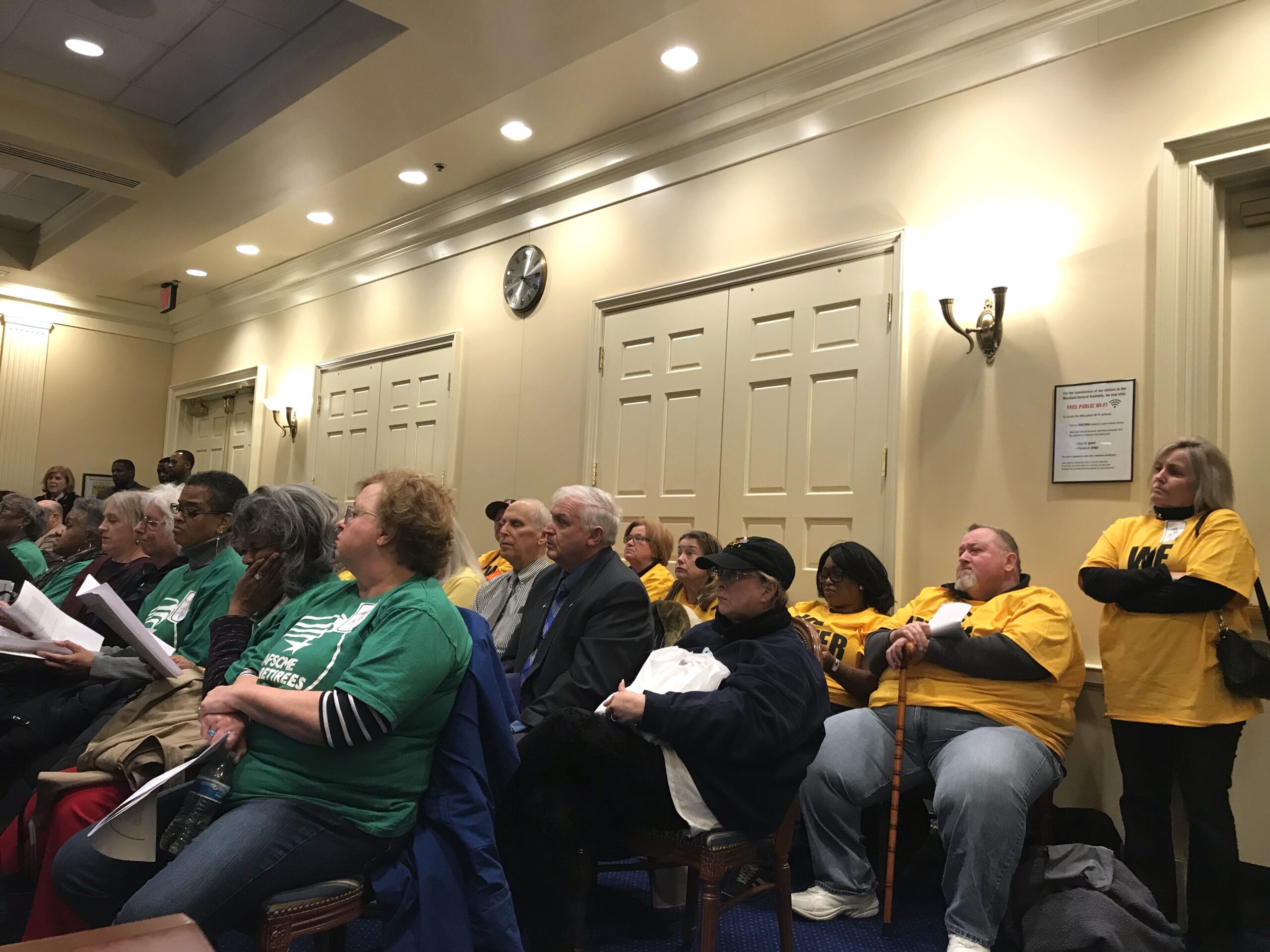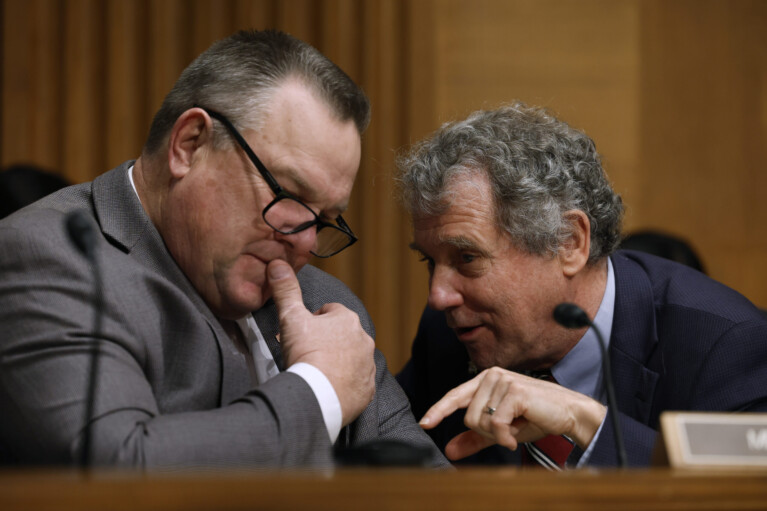Leading the Fight to Restore Retirees’ Drug Benefits

Ken Fitch traveled 40 miles on Tuesday to appear in the House Appropriations Committee along with a row of supporters wearing bright yellow “WE MATTER” T-shirts.
It’s been a long road for Fitch, 61, who retired from the Maryland Department of General Services in 2012 after more than 26 years.
Last spring, he received the letter from the Department of Budget and Management, informing him and thousands of similarly situated retirees that a long-forgotten pension reform was now kicking in – and kicking him off the state’s prescription drug benefit program and onto Medicare Part D.
“I couldn’t believe the cost. Going from $800 a year to between $11,000 to $12,000,” said Fitch, who is diabetic, has some back pain and a handful of other health problems.
He took to the Internet, setting up a closed Facebook group in August where retirees could come together to share stories of economic strife following the change. Now, he sends Facebook and email updates to about 2,000 people.
Then he took to the courts, filing a lawsuit to challenge the benefit change that has resulted in an injunction that preserves the retiree benefits while the broader case continues to wind through court.
And then he took to the streets, holding a series of meetings from La Vale to Salisbury, signing up state retirees to join the class-action suit. To date, thousands of potential plaintiffs have been identified and signed class-action forms that are stacked on the corner of a credenza in the Towson office of Fitch’s attorney, Deborah A. Holloway Hill.
But in the House Appropriations committee room on Tuesday, Fitch – the man who rallied retirees on Facebook from the hospital while he recovered from kidney failure in the fall – said complications from diabetes prevented him from walking to the front table to testify.
Hill spoke for him.
She discouraged the committee from considering legislation that would merely reimburse retirees for prescription costs going forward. Perhaps some retirees could shuffle out $30 or $40 and wait for reimbursement, Hill said, but many drugs cost thousands of dollars. Retirees on fixed incomes would struggle to buy drugs when needed while waiting for reimbursements, Hill said.
“That’s not reimbursement, that’s torture,” she said.
Dozens of retirees testified Tuesday on a series of bills intended to restore or alter prescription benefits for retirees, many of whom say they now can’t afford a Medicare prescription drug program after dedicating their working lives to public service.
In an interview with Maryland Matters from Hill’s office earlier this year, Fitch said it was the benefits to state workers alone that drew him to his job in the first place; he left a higher paying job in the private sector to move to state government in the late 1980s. That sentiment was echoed by fellow retirees on Tuesday.

Ken Fitch rests his hand on a stack of papers from state government retirees who stood to lose a prescription drug benefit in 2019 as the result of reforms passed in 2011. Fitch is the lead plaintiff in a federal lawsuit that led to an injunction reinstating the previous benefit. Photo Danielle E. Gaines
“I did my job not to get rich, but to serve our community, knowing that if we committed ourselves to the public service, we could retire with dignity,” said Ida Ward, president of AFSCME Maryland Retirees Chapter 1, who worked for 30 years at a state health facility.
There are more than a half-dozen measures pending to address the benefits program this legislative session, and finding a fix to the pension reform passed in 2011 but only broadly understood in 2018 is a priority of both parties and Gov. Lawrence J. Hogan Jr. (R).
All but one of the House measures was before the Appropriations Committee on Tuesday.
Del. Eric M. Bromwell (D-Baltimore County) sponsored legislation early in the session that drew support from more than 56 cosponsors. But a fiscal note returned Monday night came with a $10.7 billion price tag to revert to the state’s coverage for retirees. The measure was a favorite among retirees and the Senate cross-file from Sen. Katherine A. Klausmeier (D-Baltimore County) was cosponsored by every member of the chamber.
“With the cost of the fiscal note coming in, we decided this was going to take the House and the Senate coming together, so the bill will be heard in the Senate,” Bromwell said. “I just didn’t want to have two hearings on a bill with a $10 billion fiscal note.”
But Klausmeier’s bill also has not been set for a hearing yet in the Senate. She said on Tuesday that Sens. Melony G. Griffith (D-Prince George’s) and Andrew Serafini (R-Washington) were working on a comprehensive solution to the issue through their Senate Bill 946. That measure would provide state reimbursement and catastrophic coverage to many Medicare-eligible retirees instead of terminating their state prescription drug coverage altogether. The fiscal note is smaller at $2.84 billion. A hearing on the bill is scheduled for Wednesday afternoon; the House crossfile from Del. Ned Carey (D-Anne Arundel) was heard on Tuesday.
The annual estimated cost of retaining the current prescription drug program for retirees is $187 million. As the result of an injunction in the lawsuit filed by Fitch, state retirees will be allowed to continue in that program until the lawsuit is resolved.




 Creative Commons Attribution
Creative Commons Attribution